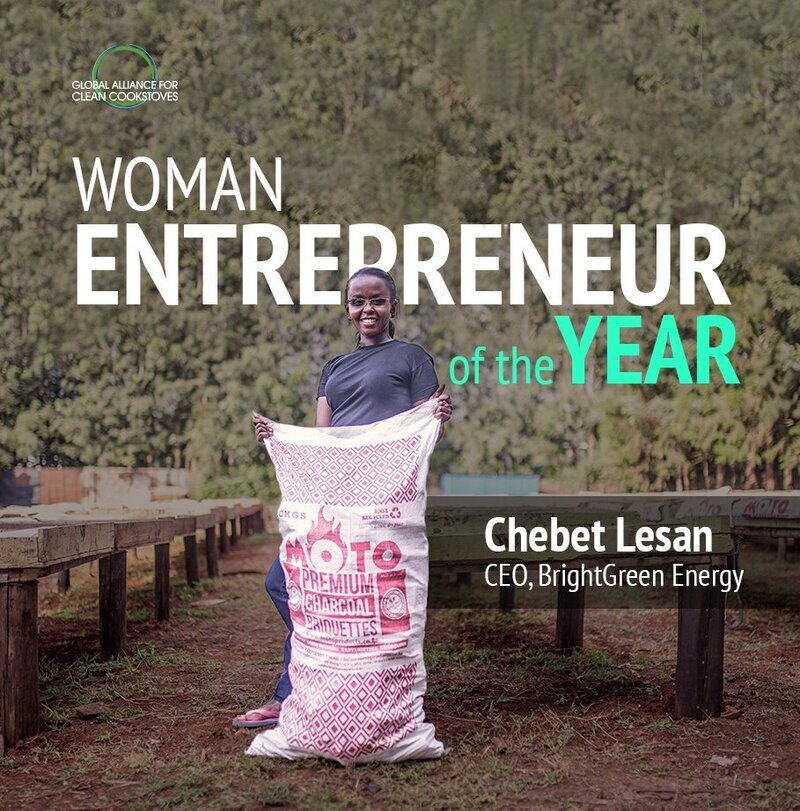
Egypt taking major strides towards green growth, SDGs..Recommended future actions
Advancing towards a green economy has received significant traction as part of Egypt’s commitment to ...

Three young Kenyan entrepreneurs have decided to break the ground by their innovative ideas to protect the environment in line with the Sustainable Development Goals (SDGs). They sought reversing trends in environmental degradation, protecting trees and reducing the need for resource extraction.
George Onyango, a 23-year-old entrepreneur, decided to upcycle metallic oil drums into eco-friendly furniture to reduce deforestation and consumption of natural resources. A recent United Nations Environment Program report indicated that there has been a 2.7 percent per year growth in the use of metal ores since 1970, reflecting the importance of metals in construction, infrastructure, manufacturing and consumer goods.
Moreover, deforestation, together with agriculture and other land use changes, is responsible for roughly 25 percent of global greenhouse gas emissions. Globally, each year approximately 12 million hectares of forest are destroyed. Deforestation and land degradation also undermine efforts to build resilience to climate impacts and threaten forest dwelling communities.
With an appreciation and love for the environment, Onyango does not like seeing people cut down trees, which made him think about alternative sources for his products. His love for art and innovation prompted him to transform metallic oil drums into something productive. He started his own company called Jus Drum Furnitures in 2018.
He sources the eco-friendly furniture from Gikomba, a local market based in Nairobi. Onyango chose to use oil drums because they have a unique look while also cutting down on wood used in furniture production. His furniture includes seats, tables and shelves, and are made to order.
Onyango’s venture into entrepreneurship has reaped many benefits. Among them are employment creation, broadening his mind and spurring creativity. His long-term plan is to expand his brand in Kenya and to other counties for an international market. He plans to use his creativity to create more employment for young people everywhere.
The second example of youth creativity in Kenya was Elizabeth Wathuti, a 23-year-old Kenyan woman and one of the African regional finalists in this year’s Young Champions of the Earth competition. She is the founder of the Green Generation Initiative which addresses challenges such as deforestation, climate change and environmental injustices, by nurturing young environmental enthusiasts to take action on climate action, zero hunger, quality education and life on land.
She has been able to achieve all this through greening schools, environmental education, planting fruit trees for food security, and inculcating a tree growing culture among people for forest cover increment through an “adopt a tree” campaign, and through working on food forest establishments in schools.
Wathuti ’s outstanding passion and personal commitment to environmental conservation led to her receiving the Wangari Maathai Scholarship Award.
Chebet Lesan, a twenty-nine-year-old, also worked on protecting the environment and reduce deforestation. Chebet is the founder and Chief Executive Officer of Bright Green Renewable Energy—a social enterprise that makes eco-friendly charcoal, made from recycled waste.
Charcoal production contributes to deforestation, which enhances environmental destruction. Furthermore, the cost of charcoal is very high in Kenya. Chebet identified these challenges and started a social enterprise that would provide Kenyans with an alternative to charcoal.
Bright Green produces 1.5–2 tons of eco-friendly briquettes a day, translating to production of 10 tonnes in a week. The briquettes are advantageous as they are smokeless, burn for three hours and are sold at 50 Kenyan shillings (US$0.50) per kilo, compared to charcoal which burns for an hour and costs more than double.
Chebet’s contribution towards conserving the environment by producing eco-friendly charcoal has not gone unnoticed. In 2017, she was recognized by Queen Elizabeth II and conferred the Queen’s Young Leaders Award for transforming lives in communities.
Meanwhile, Garrette Clark, Sustainable Lifestyles Program Officer at UNEP, “Youth are setting today’s (consumption) trends and will be tomorrow’s decision makers. There are 2-3 billion new consumers—most of them young—expected to come on line in urban settings around the world. So it is critical to work with youth to make more sustainable living and lifestyles ‘the new normal’.”
Advancing towards a green economy has received significant traction as part of Egypt’s commitment to ...
The US has sustained 403 separate weather and climate disasters in 2024 at total cost ...
The World Bank priced a 10-year euro-denominated benchmark bond maturing in January 2035, raising EUR ...


اترك تعليقا